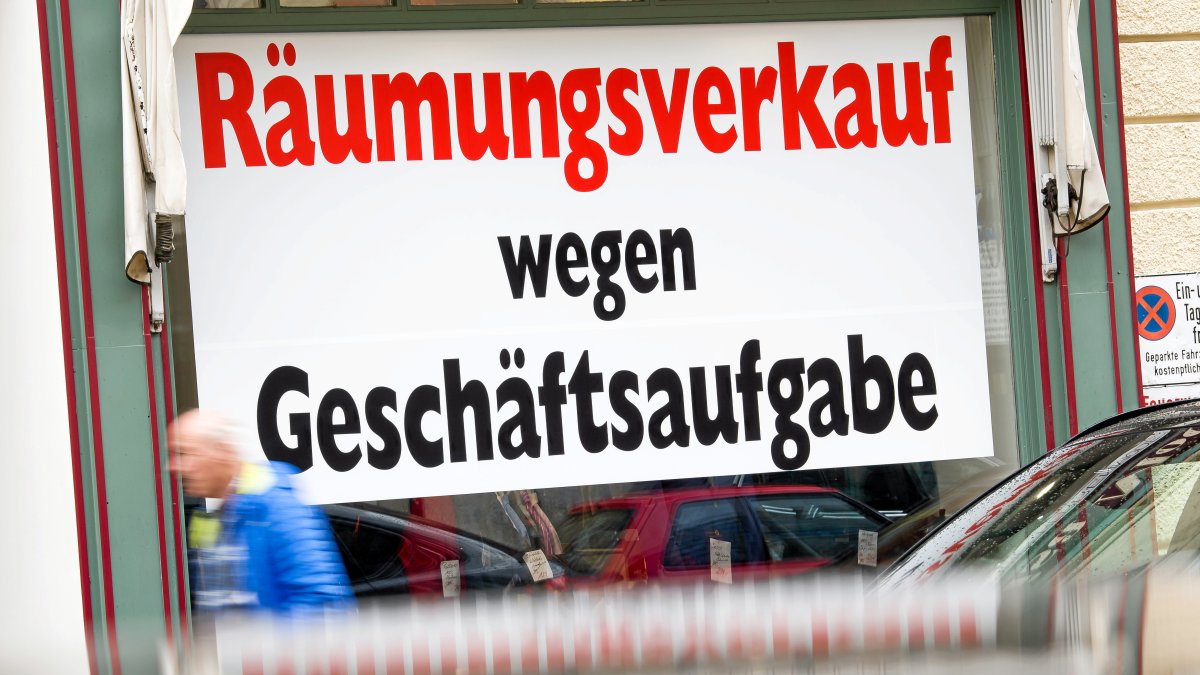Last Friday, the state statistics office in NRW published the figures for companies that went bankrupt in the first half of the year. With 2160 company bankruptcies, the number is about 20% higher than in the previous year. At the same time, the trend is forecast to deteriorate further for the rest of the year.
The data, which were presented by the state statistics office IT.NRW last week in Düsseldorf, have their roots in many issues, of course, in what today - after several economic research institutes had already announced similar things the week before - the European Commission acknowledged when it revised its growth forecast for Germany downward. Now there is no longer talk of "zero growth", but of a 0.4% decline in the economy.
German big industry is weakening because German imperialism, as the "export world champion," is seeing its markets shrink in the current weak global economy, especially China, of course, where the crisis is just beginning to make itself fully felt. In view of this, the German government is also currently intensifying its efforts to implement its industrial strategy and to strengthen the German monopolies with large-scale, state-driven measures. In the current case, through its efforts to industrialize, which Germany now needs - everyone from German industry to Wagenknecht agrees on this - because otherwise "Germany as an industrial location" would be too unattractive and one would otherwise have to fear deindustrialization. This scaremongering is an attempt to create political support for the interests of German industry, although it is clear that if anyone needs affordable electricity in the FRG, it is definitely not German industry, but us.
In addition to Germany's large-scale industry, however, many small and medium-sized enterprises are also ailing, primarily because inflation remains high, collective wage settlements lag far behind, and the working class is thus visibly being impoverished by the bourgeoisie and its governments. The Rheinische Post states accordingly:
"In particular, the retail sector, the real estate sector, the construction industry, the manufacturing sector, the healthcare and social services sector and the automotive supply industry are in the spotlight," Bähr judges. Retailers are suffering from weak consumption in Germany, while the real estate sector and construction companies are suffering from high interest rates and high construction costs."
The healthcare sector in particular is also relatively heavily affected by insolvency in NRW. Nine clinics alone went bankrupt in the first half of the year, with more to come. Likewise, the number of insolvencies of care facilities has skyrocketed. In the second quarter of this year, i.e. April, May and June, 46 cases were registered: 18 of them in the full inpatient sector, 8 in the day-patient sector, 2 in short-stay care facilities and 18 in outpatient services. In the first quarter of 2023, there number was 27, and in the complete previous year only 25.
In terms of the proportion of relative insolvencies per 10,000 companies, NRW currently ranks fourth in Germany. However, this could still change significantly by the end of the year. Figures of a 60% increase in the previous year are being mentioned. But the 2160 corporate bankruptcies in the first half of the year alone already caused 41,000 people to lose their jobs.
Source of title image: https://www.waz.de/wirtschaft/wirtschaft-in-nrw/plus-20-prozent-deutlich-mehr-firmen-melden-insolvenz-an-id239400643.html











